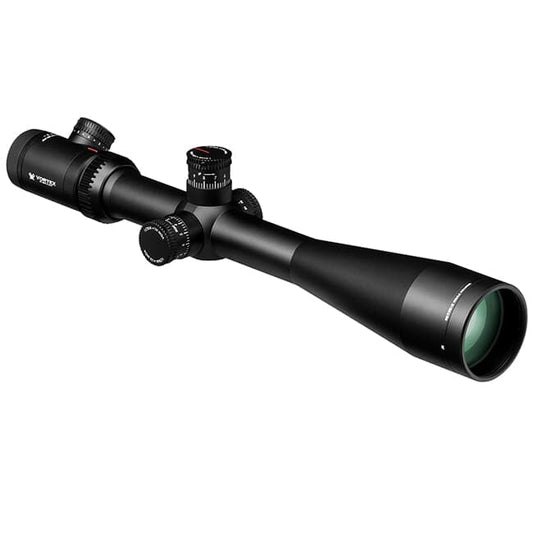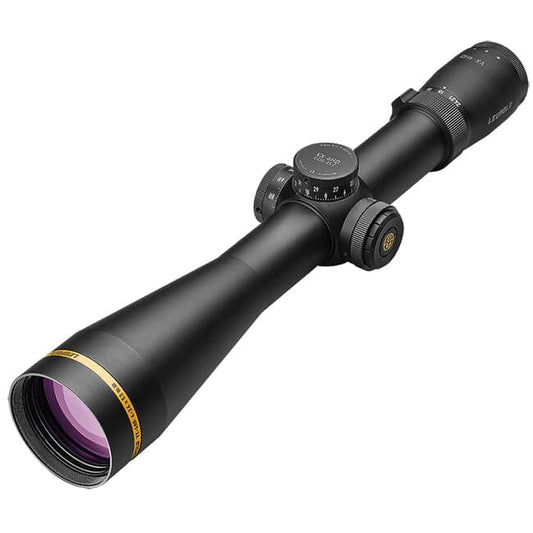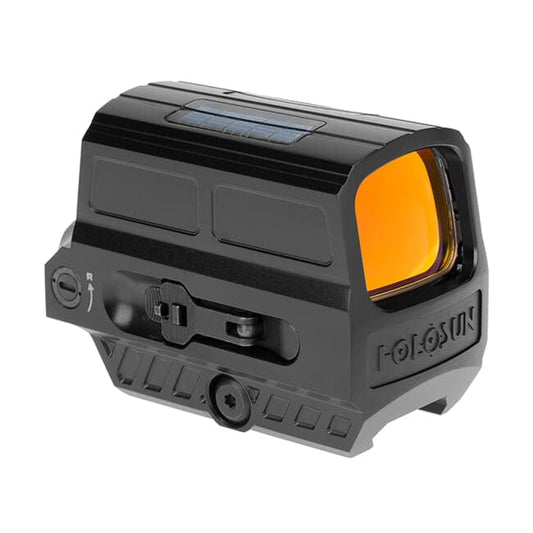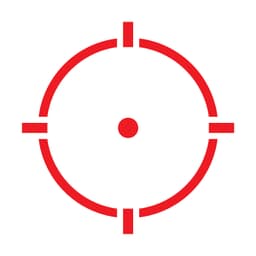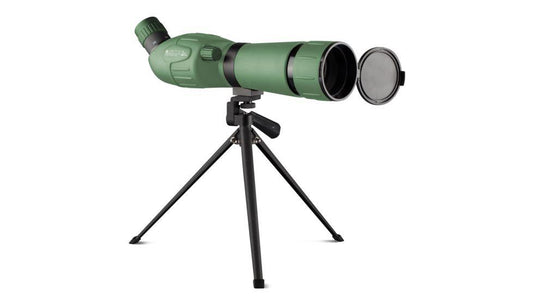

Konus 20-60x60C Zoom Angled Spotting Scope w/Tripod offers a powerful combination of versatility and clarity for outdoor viewing. The impressive zoom range allows users to easily locate and observe distant subjects, whether you are birdwatching or tracking wildlife. With anti-reflection coated optics, this scope enhances light transmission, providing clear images even in low-light conditions like dawn and dusk.
The 45-degree angled eyepiece ensures comfortable viewing from various positions, making it user-friendly whether you’re sitting or standing. Its robust design includes a lightweight yet durable construction, paired with a tabletop tripod for stability during use. The Konus 20-60x60C is designed for outdoor enthusiasts who demand performance and reliability in their gear.
Key Features:
- ENHANCED CLARITY for hunting at dawn with anti-reflection coated optics that improve light transmission.
- VERSATILE ZOOM RANGE from 20x to 60x allows for effortless tracking and detailed observation of distant subjects.
- COMFORTABLE VIEWING with a 45-degree angled eyepiece, making it easy to use while standing, sitting, or lying down.
- STURDY AND PORTABLE design includes a tabletop tripod that offers stability in any setting.
- FLIP-OUT OBJECTIVE LENS CAP protects your lens while allowing quick access for spontaneous viewing.
- FOLD-DOWN RUBBER EYECUP ensures comfortable viewing and eliminates glare, enhancing the overall experience.
- EASY FOCUSING with a single-speed focusing knob for quick adjustments on the fly.
- COMPACT AND LIGHTWEIGHT construction makes it easy to carry for long hikes or extended outdoor sessions.
Technical Specifications Table
| Magnification | 20-60x |
|---|---|
| Lens Diameter | 60mm |
| Weight | Approx. 3.1 lbs |
| Dimensions | 16 x 7 x 7 inches |
| Material | Durable Polycarbonate |
What’s in the Box?
- Konus 20-60x60C Spotting Scope
- Tabletop Tripod
- Carrying Case
- Lens Covers
- Neck Strap
Customer Reviews
“Absolutely love this scope! It has helped me spot wildlife like never before!”
“The clarity is exceptional, even at dusk. Highly recommend for any outdoor enthusiast!”
“The angled view is so comfortable. Perfect for my birdwatching trips!”
FAQ
How does the Konus 20-60x60C perform in low-light conditions?
This spotting scope excels in low-light scenarios thanks to its anti-reflection coated optics, which enhance light transmission and ensure sharp images during dawn and dusk.
Is the tripod included suitable for outdoor use?
Yes, the included tabletop tripod is designed to provide stability for outdoor viewing, making it an essential accessory for your spotting scope.
Can I use this spotting scope for birdwatching?
Absolutely! The Konus 20-60x60C Zoom Angled Spotting Scope w/Tripod is perfect for birdwatching, offering a broad zoom range and comfortable viewing angle for extended periods.
Similar Models
Looking for more exceptional optics? Explore our extensive collection, including models like the Konus 20-60x80 Zoom Spotting Scope for enhanced clarity and the Konus 10-30x50 Zoom Binoculars for portability. Discover the full range tailored to elevate your outdoor adventures!
You May Also Like
Here’s some of our most similar products people are buying. Click to discover trending style.



